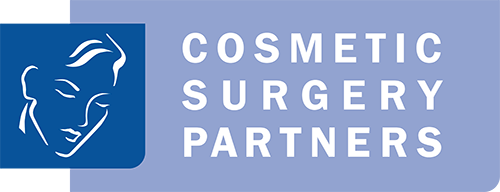Our expert UK cosmetic surgeon Mr Miles Berry interview for PMFA news

Our expert UK surgeon Mr Miles Berry interviewed for PMFA news
PMFA news publication is a bimonthly review of plastic and maxilla-facial surgery and aesthetic medicine. PMFA news were keen to do an interview with our expert uk surgeon Mr Miles Berry. Below is the transcript which was published in the October/November issue 2013.
Mr Miles Berry MS, FRCS (Plast) has been working as a specialist in plastic and aesthetic surgery for the last 15 years. As well as spending nearly four years in Manchester as a Specialist Registrar, Mr Berry was Locum Consultant at the eminent Royal Marsden hospital in London and, after winning a BAPRAS international fellowship, became Locum Consultant for oncoplastic breast surgery at the removed Institut Curie in Paris for two years. He contributed to the book Plastic Surgery edited by Peter Neligan and is a regular reviewer for JPRAS, the international journal for plastic and reconstructive surgery. In recent year Mr Berry has been working exclusively as an aesthetic surgeon in the independent sector and we are delighted to conduct a short interview with him regarding the perceived rise in media interest around so called ‘botched surgeries’.
Can you tell us a little about your own background and current practice?
I am fully trained in plastic and reconstructive surgery and with additional specialised cosmetic surgery training. My current practice encompasses pretty much the full range of cosmetic surgery with some skin cancer, breast reconstruction and transgender work.
In your practice do you see a lot of patient needing correction of ‘botched’ surgeries? What percentage of your cases?
No, our practice does not see a great deal of patient requiring correction and I would estimate the percentage to be somewhere between 5 and 10%
Do you think there has been an increase in this kind of case in recent years and, if yes, why?
Overall no, but we’re certainly seeing an increase from those who fly abroad and Eastern Europe seems to produce the most frequent referrals.
Can you describe for us the type of surgeries you have to correct most regularly?
The most frequent would be for breast surgery, usually implants and in the main those that have been placed into the wrong pockets and are an incorrect size, invariably far too large. I have, however, noticed an increase in labiaplasty and it seems more common that people are using the very old-fashioned technique of amputation and taking off an excess amount. This is a complex situation and very difficult to treat.
Have you dealt with any very unusual cases?
I’m not sure what one would find unusual, but I do work with the transgender community and this may be a little different from the usual spectrum.
Do you think there is a psychological impact as well as physical when these kinds of treatments go wrong or are incorrectly carried out?
There is always a psychological impact to any form of cosmetic surgery, after all why would people undergo modification if they were not significantly unhappy with it? For this reason, a result that does not go entirely according to plan can often lead to disappointment that is disproportionate to the problem. Very often they feel guilty also as this is not surgery that requires to be done if they have gone abroad very often there are linguistic difficulties too.
What do you think should be done to prevent this kind of thing happening so much?
To a certain extent it is educating people and the expression ‘buyer beware’ is key. The government and authorities could certainly do more to tighten up the regulation of an industry, which is effectively unregulated in this country and we are all looking forward to the government’s response to the Keogh Report that appeared in April.
There is a huge amount of media interest in this subject at the moment with TV programmes like Channel 5’s ‘Botched Up Bodies.’ Why do you think this is?
There always appears to be a large media interest, particularly when things are going wrong, for example look at the PIP story from two years ago. For whatever reason, a story with an unhappy subtext featuring disaster always seems to garner more news attention.
And finally, what do you think the impact of this media attention is on the reputation of the speciality as a whole?
The media exerts an immensely powerful and important influence on all patients, but it would help if the attitude, on occasions, were more professional and patient safety orientated. It is, of course, easy to beat with a stick a small number of people, be they cosmetic surgeons or otherwise. By the same token, it is also up to us professionals to continue to put across our message that patient safety is first and foremost in all of our interaction with them. Finally, we are strong advocates of fully and properly trained surgeons. The time for GPs, dentists and general surgeons ‘dabbling’ in cosmetic surgery with little or no actual training and experience has surely passed.





